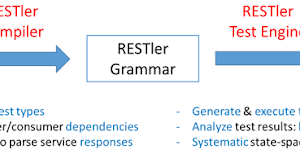Many investors that want to enter the cryptocurrency market have never traded any form of a financial instrument before. Most of them, however, have some form of knowledge of the stock market. Using lessons learned from the stock market and applying them on the cryptocurrency market is not necessarily a smart move though.
This blog post will outline a few differences and similarities between shares and cryptocurrencies and their respective trading environments, and hopefully, give you an overview over what to think about when comparing the two.
Value
First of all, an inescapable similarity between shares and cryptocurrencies is that the value is what another person is prepared to purchase the share/crypto for. If the stock or crypto price is USD 10, and a seller suddenly wants to sell for USD 100, then the value is USD 100 as soon as such seller finds a buyer. So, in a sense, the only thing that really matters is what other buyers or sellers in the market are willing to buy/sell for. Unlike for cryptocurrencies, however, there are several different ways to value shares. The most commonly used valuation methods are the following.

Margot Robbie is unfortunately not here to explain the following valuation methods for you. You just have to keep reading.
P/E Ratio
You arrive at the P/E Ratio by solving the following division: Market Value per Shares / Earnings per Share. By performing that division, you will arrive at a PE-number. If the PE-number is 20, that means that an investor is willing to pay 20 times the earnings per share to acquire one share. In order to know whether a company’s PE-number indicates that you should buy or sell the share, you must also know the PE-number for comparable companies in the same industry.
Net Asset Value per Share
Net Asset Value or NAV is essentially the accounting value of a firm, calculated by adding up its assets and then subtracting liabilities and intangible assets such as goodwill or brand value. Effectively, it is what shareholders would own if the company was wound up and its creditors repaid. If a company’s share price is less than its Net Asset Value per Share, it could be an interesting acquisition as you are effectively getting the assets for less than their accounting value.
Discounted Cash Flow
The DCF-valuation model is a bit more complex. What you do when assessing the share price with the DCF-model is to – based on profit forecasts etc. – total the expected returns at a time in the future, and then discount them back to a per-share value in today’s money that can be compared to the share price. If the discounted value is lower than today’s share price, then the share is attractively priced.
None of the above valuation models work on cryptocurrencies. The reason being that all of the above valuation models are based on the financial statements and forecasts of the Company and that companies issuing cryptocurrencies are not required to publish any such statements or forecasts. Accordingly, we simply do not have the data we need for doing the relevant valuations when it comes to investing in virtual currency and even if we had – such valuations would be useless seeing that your possession of such a currency gives you no right to the company’s assets. This, that no one really knows the “true” value of any cryptocurrency, is an inherent risk in investing in cryptocurrencies.
Ownership and Voting Rights
A big difference between shares and cryptocurrencies on a conceptual level is that cryptos (as mentioned briefly above) give you no ownership interests or voting rights in the underlying entity. If you own shares representing 1% of the share capital in a company, you also own 1% of the company. In the event of bankruptcy, you are entitled to receive 1% of the company’s remaining assets (after certain prioritized debts have been paid). You are also entitled to vote for your shares at such company’s general meetings. When you own 1% of the outstanding coins that a company has issued, you own 0% of the company and you are not entitled to vote at such company’s general meetings. It can be argued, however, that the no-ownership and no-voting rights aspect with cryptocurrencies is irrelevant, seeing that 99% of the shareholders on Nasdaq also only own shares for potential ROI and don’t really care about the actual ownership or voting rights.

When owning cryptocurrencies, you will not be summoned to general meetings where things can (but rarely does) “heat up”.
Dividends
An additional difference between shares and cryptocurrencies is the access to dividends. Successful companies often give its shareholders a yearly dividend amounting to a few percentage points of the share price each year. The size of the dividend is proposed by the board of directors of the company and resolved upon by the company’s general meeting of shareholders. The dividend feature doesn’t (with a few voluntary exceptions, e.g. the token issued by the KuCoin platform) exist in the cryptocurrency world. To be fair here, it should be noted that some cryptocurrencies split into separate cryptocurrencies. We call this a Fork. This can in some aspects be viewed as dividends.
Insider trading
Another huge difference between shares and cryptocurrencies is that shares are heavily regulated. There are numerous rules and regulations regarding what companies in the stock market must and must not do and what the investors in the stock market must not do.
For instance, the rules on insider trading prohibit people in the market from trading based on price-sensitive information (being information that has the potential of influencing a particular company’s share price). Accordingly, as an investor, you cannot take advantage of other investors not having the price-sensitive information you have. This is however fully possible in the cryptomarket. This can be further illustrated by an example.
EXAMPLE: Robert works at Tech Company LLC. Tech Company LLC have issued shares traded on a stock exchange, and tokens traded on several cryptocurrency exchanges. Robert happens to know that the company has developed a superefficient and market-changing technical solution that the company will announce to the public on Wednesday. If Robert purchases shares on Tuesday, he might (if caught) be sentenced for insider trading and can possibly face some time in jail. However, if Robert purchases tokens on Tuesday, he will not be liable for anything and can enjoy any gains made when the news is published on Wednesday.

“Robert” after buying tokens on Tuesday.
Financial statements
Another important part of regulation is the rules on periodic distribution of financial statements. As mentioned above when discussing the valuation models, companies with shares traded on a stock exchange are required to release yearly and quarterly financial statements, showing how the company’s business has developed during such period and is expected to develop going forward. If the company has reason to believe that the expectations are flawed, the company must issue a public statement revising such expectations. Companies with tokens traded on a crypto exchange are under no obligation at all to provide any information as to the company’s financial statements or expectations.
Needless to say, the absence of regulation and obligations to present financial statements is an inherent risk in investing in cryptocurrencies and a difficulty when deciding which digital currency to invest in.
Trading hours
The stock markets close. The exchanges where you can trade financial instruments are not open during the weekend and normally close in the afternoon, around 5 p.m. (the exact time dependent upon in which country the relevant exchange is based). If you want to be on top of your holdings and never miss a beat, you can comfortably sit back in your sofa when the stock markets close and look back on a (hopefully) successful day. This is not possible in the crypto world. The cryptocurrency exchanges are open 24/7 for the whole year (including Christmas). So, if you can’t relax until the markets are closed, trading cryptocurrency for profit is nothing for you.

In the world of crypto, it’s always business time.
Trading Fees
Another difference between shares and cryptocurrencies is the fees for trading. In the crypto world the main fees to be concerned about are the “maker/taker fees” and the withdrawal fees, whereas in the share world you first and foremost have the brokerage fees.
The maker and taker fees that are the common versions of trading fees. To summarize, a trade gets the taker fee if the trade order is matched immediately against an order already on the order book. This order removes liquidity from the order book. A trade gets the maker fee if the trade order is not matched immediately against an order already on the order book. This order adds liquidity to the order book. When a fee is flat it is equally high or low irrespective of whether you are a taker or a maker.
When trading on the stock market there are no taker or maker fees, both parties are charged with fees, being brokerage fees. The brokerage fees are normally dependent upon from which account you are trading.
Today, an “industry standard” is that the taker fees are in the interval of 0.20% – 0.25%. Brokerage fees, however, vary from country to country but a global industry average is far below the above-mentioned interval. On the flip side, some crypto exchanges offer 0-fee trading (Cobinhood, ZB.com, Indodax, Coincheck) (and a few exceptions even offer negative trading fees, usually maker fees, meaning that you can get paid to trade: BitMEX and HitBTC). To Cryptowisser’s knowledge, there are no such brokerage fees in the world of share trading.
A final difference between shares and cryptocurrencies to highlight is that many cryptocurrency exchanges charge withdrawal fees when a trader wants to take home his/her profits. This is uncommon when share trading.
Conclusion
The conclusion to be drawn based on the above analysis is easy: an investment in cryptocurrencies is riskier than an investment in shares. The price of a share is more correctly set by the market (as the company releases financial statements periodically that are the basis for different valuation models to apply). But, on the flip side, an investment in cryptocurrencies provides less “obstacles” to be concerned with (e.g., less prohibited trading practices and unlimited trading hours) and the potential for generating extreme profits is much bigger in the crypto world (mostly due to the volatility in the crypto world).
Just as with any investment practice, our recommendation is to do your research before starting to trade in crypto. We hope that this has helped you learn more about the difference between shares and cryptocurrencies.
This article is originally posted on CoinCentral.com





















Add Comment